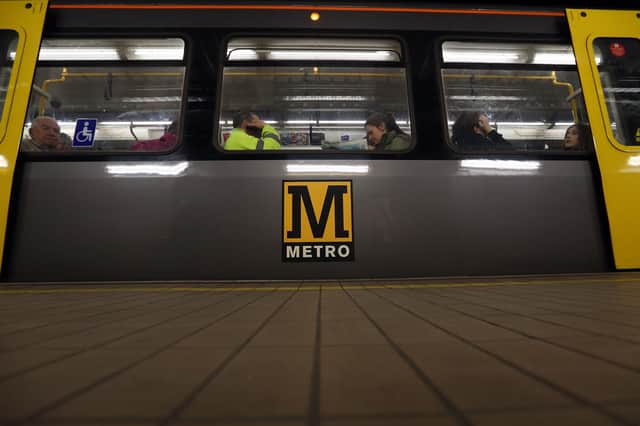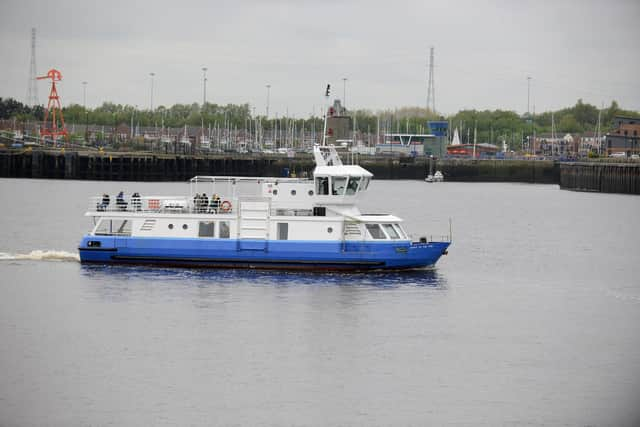Metro, Shields Ferry and bus services face cuts after covid leaves £19million black hole in budgets


Tyne and Wear Metro operator Nexus is predicting a severe budget deficit next year, with the end of bailout funding that has covered the network’s heavy losses since the Covid pandemic hit.
The Government’s insistence that a final £13million emergency support package which runs out in April will be the last help it provides has set alarm bells ringing once more over the perilous state of the Metro’s finances.
Advertisement
Hide AdAdvertisement
Hide AdLatest forecasts for 2022/23 estimate that the Metro faces a £16million shortfall, while there is a further £3.2million deficit relating to other Nexus services such as the Shields Ferry and ‘secured’ bus services that it pays private operators to run.


There are serious fears that major cuts will need to be made shortly unless ministers can be convinced to extend the Metro’s Covid bailout funding, which has already topped £50million, and local councils cannot find extra money within their own depleted coffers to plug the gap.
But a report to the North East Joint Transport Committee (JTC) also warns that if Metro services were slashed it would risk plunging the network into a “spiral of decline” by further reducing ticket revenue, which has already taken a massive hit over the last 18 months with the Covid pandemic causing a major drop in passenger numbers.
JTC chair and Gateshead Council leader Martin Gannon said: “Metro is facing a financial black hole of up to £16million next year caused purely by Covid-19, and we desperately need the Government to extend its very welcome support into the next financial year.
Advertisement
Hide AdAdvertisement
Hide Ad“Without this Government support we will face an unprecedented financial challenge that could have a very damaging impact on our region.”
Nexus says that cutting back train numbers so substantially that only three in either direction stopped at stations every hour would save just £3.7million in running costs and that “is not considered possible for Metro to save its way out of the situation”.
Its director of finance, John Fenwick, reported that passenger numbers have now recovered to 75% of pre-Covid levels and that Metro has recovered faster than any other light rail network in the country.
But he added that “the recovery is going to be gradual and further financial support will still be needed next year” for the Metro, which has a long-awaited £360million fleet of new trains under construction in Switzerland.
Advertisement
Hide AdAdvertisement
Hide AdEven before Covid arrived, however, there were fears about Nexus’ money problems.
Warnings in 2019 about the publicly-owned body’s finances prompted concerns over the future of bus services in areas not covered by commercial operators, the ferry, and some concession fares such as the Metro under-16 Pop card.
Nexus has also warned that, while it could dip into its reserves to cover the shortfall, relying solely on that option would use up every penny of them in 2022/23 alone – and there would still be a further £19.8m budget deficit the following year.
Newcastle Lib Dem councillor Greg Stone said he was “gravely concerned that Metro service cuts in 2022/23 and beyond are now a very real possibility”.
He added: “It’s been clear that there have been underlying problems in Nexus’s budget dating back before the pandemic, and I am very anxious about what happens when Government crisis bailouts end next spring. I am not confident that committing all the remaining reserves or expecting the councils to increase their levy contributions are viable options.”
North of Tyne mayor Jamie Driscoll said: “We’re all doing our best to get back to normal following Covid but the pandemic continues to affect people, especially the way we travel. Covid is still a dangerous disease. It’s still causing people to get sick and thousands of people to self-isolate.
“While that remains the case, the Government must continue its financial support for the Metro.”
The Department for Transport has been approached for a comment.